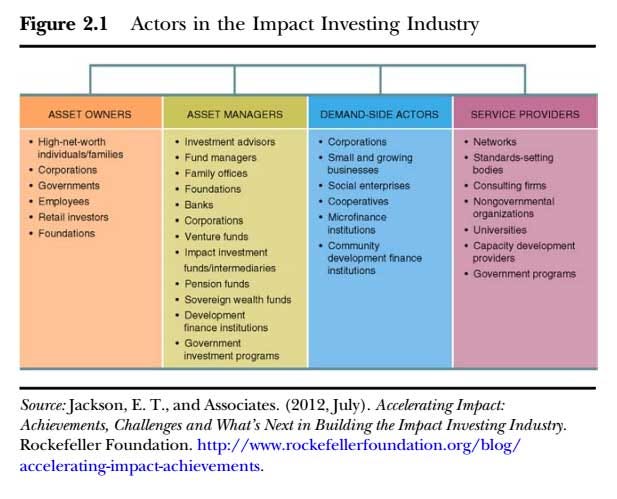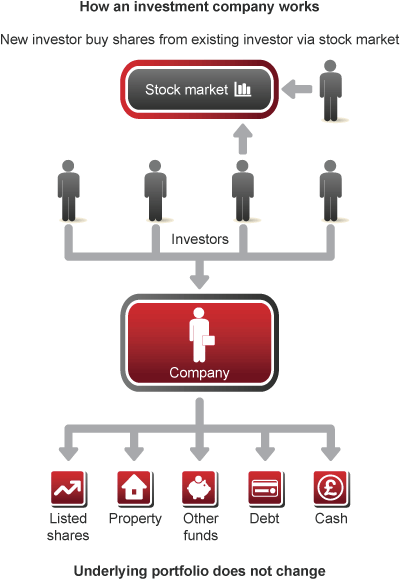Table of Contents
Investment firms spend money on behalf of their clients who, in return, share in the earnings and losses.

Investment business do not include brokerage firm firms, insurance provider, or financial institutions. In USA safeties regulation, there are at least 5 sorts of investment firm: As a whole, each of these investment firm have to sign up under the Stocks Act of 1933 and the Investment Company Act of 1940. A fourth and lesser-known sort of investment company under the Financial Investment Business Act of 1940 is a Face-Amount Certification Business.
A significant type of business not covered under the Financial Investment Firm Act 1940 is exclusive financial investment firms, which are merely private firms that make financial investments in stocks or bonds, but are limited to under 250 capitalists and are not controlled by the SEC. These funds are usually made up of very well-off financiers.
This provides certain protections and oversight for investors. Managed funds normally have restrictions on the kinds and amounts of investments the fund manager can make. Commonly, controlled funds may just spend in detailed securities and no greater than 5% of the fund may be bought a solitary protection. The bulk of investment firm are common funds, both in regards to number of funds and properties under management.
Investment Firms around Pasadena
The first investment company were established in Europe in the late 1700s by a Dutch trader that wished to enable little financiers to merge their funds and branch out. This is where the concept of investment business stem, as specified by K. Geert Rouwenhorst. In the 1800s in England, "investment merging" arised with trust funds that looked like contemporary mutual fund in structure.

New safety and securities guidelines in the 1930s like the 1933 Stocks Act brought back capitalist self-confidence.
United State Stocks and Exchange Commission (SEC).
Investment Company servicing Pasadena, Texas
Lemke, Lins and Smith, Guideline of Financial Investment Business, 4.01 (Matthew Bender, 2016 ed.). ACM. 2023.
In retail investment funds, thousands of investors may be involved by means of intermediaries, and they might have little or no control of the fund's tasks or understanding about the identifications of other investors. The prospective number of financiers in a private mutual fund is normally smaller sized than retail funds. Private investment funds often tend to target high-net-worth individuals, including politically exposed persons, and fund managers may have a close connection with their customer investors.

Passive funds have been expanding in their market share, and in some territories they hold a considerable section of possession in openly traded companies. There are several categories for mutual fund. As an example, some are closed-end, indicating they have a fixed variety of shares or resources, whilst others are open-end, implying they can become endless shares or capital.
The prices, threat, and regards to derivatives are based upon an underlying possession, and they allow capitalists to hedge a position, increase leverage, or guess on a property's change in worth. For example, an investor could have both a supply and an option on the exact same stock that allows them to market it at an established cost; consequently, if the stock's price falls, the alternative still preserves value, minimizing the capitalist's losses.
Whilst thought about, offered the focus of this instruction on the robot of business lorries, a complete therapy of the advantageous ownership of properties is outside its range. A mutual fund acts as a conduit to profit from one or more properties being held as investments. Financiers can be people, corporate cars, or organizations, and there are usually a number of middlemans in between the financier and financial investment fund in addition to between the mutual fund and the underlying financial possessions, specifically if the fund's systems are exchange-traded (Box 1).
Investment Company around Pasadena
Depending on its lawful type and framework, the individuals exercising control of a mutual fund itself can vary from the individuals that have and take advantage of the underlying properties being held by the fund at any kind of offered point, either directly or indirectly. Both retail and private investment funds commonly have fund managers or experts that make investment choices for the fund, choosing protections that align with the fund's purposes and take the chance of resistance.
and serve as middlemans between financiers and the fund, assisting in the trading of fund shares. They connect capitalists with the fund's shares and carry out trades on their part. take care of the registration and transfer of fund shares, keeping a record of shareholders, processing possession modifications, and issuing proxy materials for shareholder meetings.
Navigation
Latest Posts
Investment Management local to Pasadena
Investment Firms
Investment Management local to Pasadena, Texas
